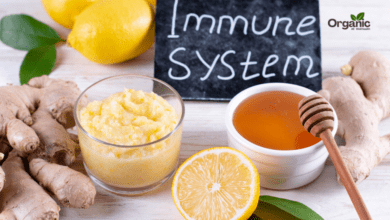How Can I Get Help for Depression? A Complete Guide by allwellhealthorganic

Depression is a complex and often overwhelming mental health condition that can affect anyone, regardless of age, gender, or background. If you are asking yourself, “How Can I Get Help for Depression?”, know that you are not alone. Millions of people around the world face depression and successfully manage it with the right support, tools, and strategies. This detailed guide from allwellhealthorganic explores various ways to seek help, including therapy, medication, lifestyle changes, and community support, to empower you on your mental health journey.
Understanding Depression: Why Seeking Help Matters
Before we delve into how can I get help for depression, it’s important to understand that depression is more than just feeling sad. It is a medical condition that affects your thoughts, feelings, behavior, and overall well-being. Recognizing the signs early and seeking appropriate help can lead to better outcomes and a higher quality of life.
Common Symptoms of Depression
- Persistent sadness or low mood
- Loss of interest in activities once enjoyed
- Fatigue or low energy
- Difficulty concentrating
- Changes in appetite or weight
- Sleep disturbances
- Feelings of worthlessness or excessive guilt
- Thoughts of self-harm or suicide
If you or someone you know experiences these symptoms, it’s crucial to explore how can I get help for depression and take the necessary steps.
Therapy: One of the Most Effective Answers to How Can I Get Help for Depression?
When asking how can I get help for depression, therapy is often one of the first recommendations by healthcare professionals. Different forms of therapy can cater to various needs and preferences.
Talk Therapy (Psychotherapy)
Talk therapy provides a safe space where you can openly express your thoughts, emotions, and concerns. A trained therapist helps you:
- Identify and challenge negative thinking patterns
- Understand triggers for your depression
- Build coping strategies
Talk therapy can be highly beneficial for mild to moderate depression and can complement other treatments for more severe cases.
Cognitive Therapy
Cognitive therapy focuses on identifying harmful thought patterns that contribute to depression. The goal is to replace these with healthier, more constructive thoughts. Typically, cognitive therapy is short-term, lasting between 6 weeks and 4 months.
Behavioral Therapy
Behavioral therapy helps you change unhealthy behaviors that may worsen depression. This approach encourages engagement in positive activities that can lift your mood and improve well-being.
Cognitive Behavioral Therapy (CBT)
CBT combines elements of cognitive and behavioral therapies to address both negative thoughts and unhelpful behaviors. If you’re wondering how can I get help for depression that tackles both mindsets and actions, CBT is a powerful option.
Medications: Another Key Component in Answering How Can I Get Help for Depression?
While therapy is essential, some individuals may also require medication to manage depression. Depression is linked to chemical imbalances in the brain, and certain medications can help correct these.
Selective Serotonin Reuptake Inhibitors (SSRIs)
SSRIs like fluoxetine (Prozac), sertraline (Zoloft), and escitalopram (Lexapro) are often the first choice because they typically have fewer side effects. These medications increase serotonin levels in the brain, helping improve mood.
Serotonin-Norepinephrine Reuptake Inhibitors (SNRIs)
SNRIs, including duloxetine (Cymbalta) and desvenlafaxine (Pristiq), boost both serotonin and norepinephrine levels. They may be recommended if SSRIs are not effective.
Tricyclic Antidepressants
These older medications can be very effective but usually have more side effects. They are typically considered when other treatments haven’t worked.
It’s important to consult your healthcare provider to determine the most suitable medication for your needs. If you’re asking how can I get help for depression, remember that medication is just one part of a comprehensive treatment plan.
Natural Remedies and Complementary Treatments
For those exploring how can I get help for depression without or alongside conventional treatments, natural remedies may provide relief. However, it is vital to discuss these options with your doctor, especially if you are taking prescription medications.
Popular Natural Options
- St. John’s Wort: May help mild depression but can interact with other medications.
- Acupuncture: Some find this traditional practice reduces depressive symptoms.
- Relaxation techniques: Yoga, meditation, and deep breathing can support emotional balance.
Support Groups: Finding Strength in Community
Sometimes, one of the best answers to how can I get help for depression is connecting with others who understand. Support groups offer emotional support, practical advice, and a sense of belonging.
Where to Find Support Groups
- National Alliance on Mental Illness (NAMI) provides free support groups and educational resources.
- Anxiety and Depression Association of America (ADAA) offers both in-person and virtual groups, as well as an online community of over 84,000 members.
These communities can play a key role in recovery and help you feel less isolated.
Lifestyle Changes: Everyday Steps to Manage Depression
As you consider how can I get help for depression, remember that daily habits have a significant impact. Small, consistent changes can contribute greatly to emotional health.
Healthy Lifestyle Practices
- Exercise regularly: Boosts endorphins and mood.
- Eat a balanced diet: Nutrient-rich foods support brain health.
- Get adequate sleep: Essential for emotional and physical well-being.
- Avoid alcohol and substances: These may worsen symptoms over time.
Finding Treatment Near You
One of the first steps is to make an appointment with a primary care physician or mental health professional. They can guide you toward appropriate treatment.
Additional Resources
- Online therapy: A convenient option for many, with low-cost and free services available.
- Faith-based counseling: For those who prefer a spiritual approach, religious leaders can help connect you with trusted counselors.
- Professional directories: Platforms like Psychology Today and GoodTherapy.org help you find licensed therapists in your area.
Also Read: Fast-Paced Life? These Energy Tips Will Keep You One Step Ahead
How to Choose the Right Treatment Plan
Choosing the right treatment can take time. When asking how can I get help for depression, it’s important to:
- Stay patient: Results may take a few months.
- Be open: Communicate honestly with your therapist or doctor.
- Stay committed: Avoid quitting treatment suddenly without medical advice.
If a treatment plan doesn’t seem effective after two to three months, talk with your doctor about alternative approaches.
FAQs | How Can I Get Help for Depression?
Is depression just a chemical imbalance?
No, depression is multifaceted. While brain chemistry plays a role, environmental, genetic, and psychological factors contribute as well.
What causes depression?
There’s no single cause. It can result from a combination of biological, environmental, and emotional factors.
How can I support someone with depression?
Offer empathy, listen without judgment, and encourage professional help.
Conclusion:- Your Path to Support
If you’ve been wondering how can I get help for depression, know that help is available, and recovery is possible. Whether through therapy, medication, natural remedies, support groups, or lifestyle changes, there are many pathways to healing. The allwellhealthorganic team encourages you to reach out to a professional and explore the options that work best for you. With the right plan and support, you can navigate depression and reclaim your well-being.
Disclaimer: This advice is for general informational purposes only. It is not a substitute for professional medical advice. Always consult an expert or your own doctor for more information. WellHealthOrganic is not responsible for the accuracy of this information

